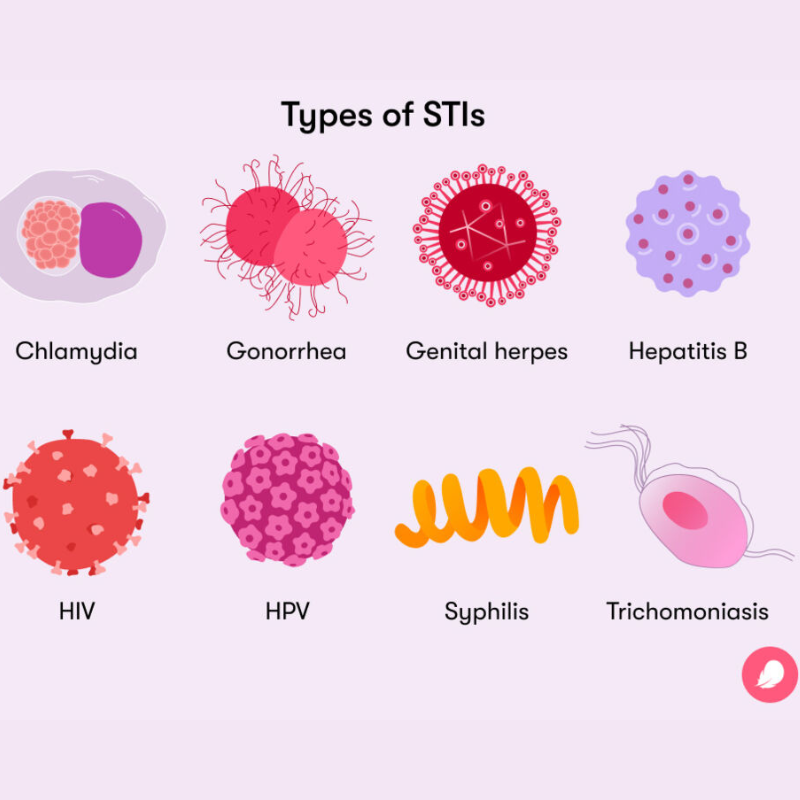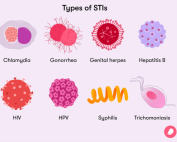I’ve been seeing a lot of STI screening questions on the ENM forums that I follow on social media. It’s astonishing how little education is offered to the public on these very preventable and treatable conditions.

STI= Sexually Transmitted Infection
Doctors have adopted this term over the older terms “sexually transmitted disease” and “venereal disease” because infections are treatable and “disease” implies a debilitating or terminal problem. Some infections, such as Human Immunodeficiency Virus (HIV) and Herpes Simplex Virus (HSV) require lifelong treatment but scientific advances have made these infections more of a nuisance than a terminal disease. With appropriate screening, diagnosis and management, even people with these ongoing or recurring infections can lead healthy, fulfilling sex lives.
Routine screening typically includes gonorrhea, chlamydia, thrichomonas, syphillis and HIV 1/2. Hepatitis is also sexually transmitted and there is no vaccine for Hep C. For that reason, it makes sense to include a screening for Hep C at least annually in people who are vaccinated against Hep A and B. People who are unvaccinated against Hepatitis B should consider vaccination or regular testing. While Hepatitis A is an unpleasant but self-limited diarrheal infection, it can be spread through sexual contact. Especially anal play. Vaccine is available for hepatitis A.
People who give oral sex should be getting throat swabs for gonorrhea and chlamydia because the typical urine or vaginal screening will miss an infection in the throat. Vaginal swabs are more sensitive in picking up infection than urine screening. People who receive anal should be getting rectal swabs for the same reasons.
HSV screening isn’t recommended by doctors because many people that test positive for antibodies don’t get active lesions. The gold standard for diagnosis is a culture of an active lesion: either oral or genital. One can have antibodies against HSV 1 or 2 and not get outbreaks. Those people aren’t at risk of transmitting the virus.
The issue with HSV is that it’s incredibly common and the stigma is far worse than what amounts to an obnoxious and occasional skin condition for most people. That said, HSV can be a huge problem for pregnant people, newborns and people with compromised immune systems. People with HSV can take suppressive medication that drastically decreases the severity and frequency of outbreaks and reduces the risk of transmission.
There have been outbreaks of mycoplasma and ureaplasma among adult industry performers (there’s a tracking system that monitors outbreaks and halts production when necessary). Many doctors don’t routinely screen for these among the public but it’s worth asking about if you develop symptoms (odor, discharge, itching or burning).
Some women get bacterial vaginosis (BV) because of a change in the pH of the vaginal flora. It’s worth asking your doctor about if symptoms arise.
The HPV vaccine was recently approved for people up to 46 years of age. I recommend it to adults who haven’t gotten it because it has dramatically decreased the incidence of cervical and oral/head/neck cancers since its development. And nobody wants genital warts.
Early studies have shown that 200mg of doxycycline after unprotected sex can reduce the risk of transmission of GC, CT and syphillis by 60%. Referred to as “DoxyPEP”, studies of this as a preventative measure are ongoing.
HelloWisp.com is an online resource for discreet and confidential testing and treatment of STIs. You can also ask your doctor or healthcare provider for a standing order for routine STI screening at a commercial lab. I recommend that sexually active people get screened at least every 3-6 months. If your doctor or other healthcare provider is not offering routine screening or makes you feel bad about asking for it, find another doctor or provider.
Have fun and be safe!














